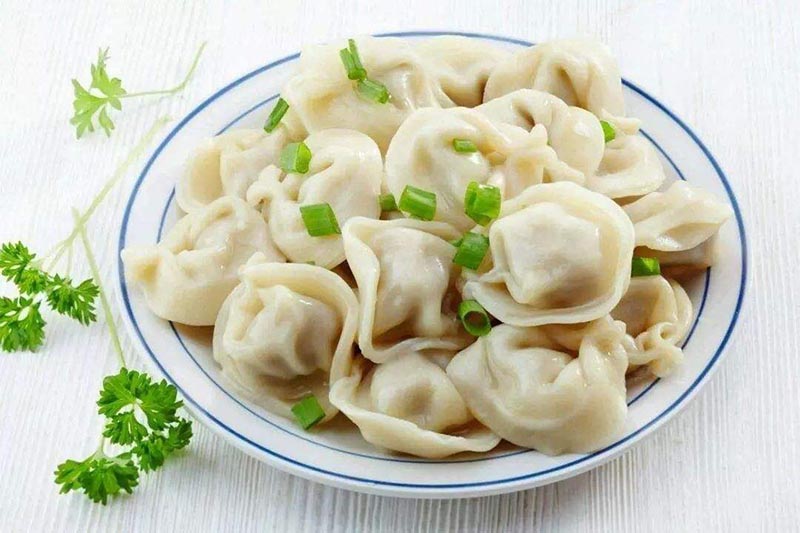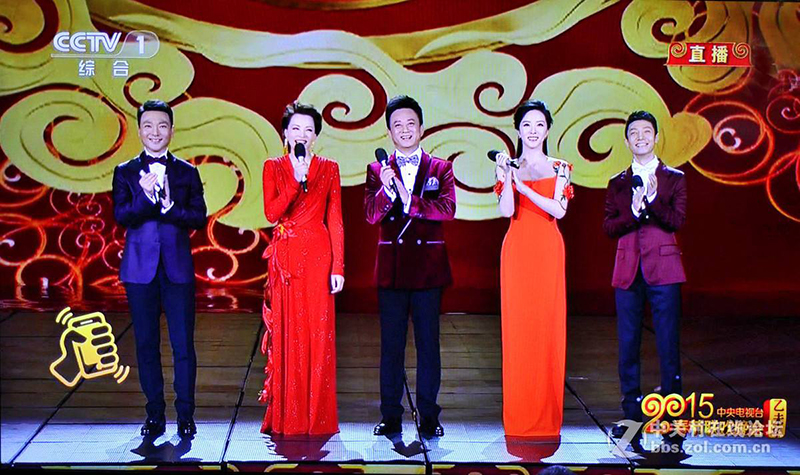中国农历新年英语(下)
Part 2: New Year’s Eve 除夕夜
每年除夕都是咱们国人迎新年的重头戏。这些“必备”习俗,想必小伙伴们也都再熟悉不过了!
1 Enjoying a Reunion Dinner
年夜饭
The New Year’s Eve Feast is a ‘must have’ dinner with all family members reuniting. Chinese try very hard to make this family event, often traveling long distances.
年夜饭是所有家庭成员欢聚一堂必不可少的一顿饭。中国人为了这顿年夜饭,常常要长度跋涉才能团聚在一起。
People from north and south China eat different foods on this special occasion, and many New Year foods are symbolic. In northern China a traditional dish for the feast is jiaozi (dumplings). They are shaped like old Chinese ingots, symbolizes wealth.
南北方人吃年夜饭可能有所差异,而且很多新年菜式很有象征意义。比如在北方,年夜饭上的一道传统菜肴是饺子。饺子的形状很像古代中国的元宝,象征着财富。
Southern Chinese eat niangao (sticky rice cake) on this special day, because niangao sounds like ‘yearly higher’, symbolizing improvement.
而南方在这个特别的日子里则会吃年糕,因为“年糕”的发音同“年高”,象征着节节高升。
2 Setting up Firecrakers and Fireworks
放烟火
Fireworks will be launched to celebrate the coming of the New Year as well as to drive away the evil. It is believed that the person who launched the first firework of the New Year will obtain good luck. Many people attend or watch the public and private firework displays from their windows.
放鞭炮是为了迎接新年、驱除恶鬼。一般认为,第一个放鞭炮的人将在新年迎来好运。许多人也会站在窗前观看公共或私人燃放的烟花。
3 Red Packets/ Envelopes
包红包
The Red packet is a red envelope with money in it, which ranges from one to a few thousand Chinese yuan. Usually the red packet is given by adults, especially married couples, and elderly to young children in New Year days. It was believed that the money in the red packet will suppress the evil from the children and, keep them healthy.
红包是装钱的红信封,钱的数额从一块到几千不等。过年时,一般是成年人,尤其是已婚夫妇,将红包给孩子。通常认为,红包里的钱能抵御厄运,让孩子健康成长。
而近几年,新春时期的电子红包越发抢眼……
App-sent/received ‘red envelopes’ appeared in recent years, and they quickly became the most popular New Year activity among the young. Many young people spend most of their New Year holiday time exchanging cyber money via red envelope apps for fun.
用APP收发红包,近几年也出现在人们视野,并迅速成为年轻人群体中最流行的新年活动。许多年轻人将大部分新年假期都花在互发电子红包上,为图一乐。
4 Watching CCTV’s New Year Gala
看春晚
It’s become a Chinese custom for many familes to watch the CCTV New Year Gala while having their dinner. The gala starts at 8 pm and ends at midnight when the New Year arrives, featuring traditional folk, and pop performances from China’s best singers, dancers, and acrobats.
吃年夜饭看春晚已经成为很多中国家庭的习俗。晚会开始于除夕夜晚上八点,凌晨新年钟声敲响时结束,中国最优秀的歌手、舞者和杂技演员会登台表演传统小品和流行节目。
Part 3: Lunar New Year’s Day 初一
终于到了正月初一,这一天也有不少咱们熟悉的习俗呢!
1Putting on New Clothes and Extending New Year Greetings 穿新衣,拜新年
On the first day of the New Year, Chinese put on new clothes and wish each other good luck and happiness in the New Year. It is customary for the younger generation to visit their elders, and wish them health and longevity.
在大年初一,国人会穿上新衣服,并对亲朋好友道一句“恭喜”,希望彼此能在新年幸福快乐。传统习俗是年轻人给长辈拜年,祝福他们健康长寿。
In recent years, a new way to do New Year greetings has appeared, especially among the young. Busy people who don’t have time to visit their friends or relatives send a WeChat red envelope or a text message instead.
近几年, 一种新的拜年方式开始风行,尤其在年轻人之间。那些无暇走亲访友的人会发一个微信红包或短信来代替。
2 Offering Sacrifices to Ancestors
祭祖
Ancestor worship varies widely across China — from sweeping tombs in the wild to worshiping ancestors in ancestral halls or temples. Many (especially rural) people offer sacrifices to their ancestors in the main hall of the house, where an ancestor altar is displayed. Then family members kneel and bow in front of the wall-mounted shrine, from the oldest to the youngest.
祭祖仪式在中国各地有多种形式——从野外扫墓到在宗族庙堂为祖先上香。许多人(尤其是在农村)会在家中供奉祖先排位的主厅祭祖。家族成员由长而幼,在祖先牌位面前跪下磕头。
This custom has been practiced in China every year for thousands of years. Offering sacrifices to ancestors shows respect, piety, and missing departed relatives on such a special festival. It is also believed that ancestral spirits will protect their descendants and make them prosperous.
这项每年举行的仪式在中国已有千年的历史。在这一特别的日子里,祭祖表达后人对祖先的尊敬、虔诚和思念。而人们也相信,祖先灵魂会保佑自己的子孙后代,让后人生活富足。
3 Watching Lion and Dragon Dances
看龙狮表演
Lion dances and dragon dances might be seen too on New Year’s Day. Once very popular in China, they are reappearing in many places. They are more popular in Hong Kong and Macao.
在新年,舞龙舞狮表演也很常见。这一曾经很流行的习俗,现在又在很多地方重现,尤其风行于香港和澳门。
过完年以后,节日的红火气氛也不会迅速被淡化。诸如正月初二回娘家,继续走亲访友等活动仍会持续。
传统上,一般正月初三之后才会再次打扫房屋,以防止新年的好运气在头两日被带走。
而正月初八是大部分商店企业重新开工的日子,因为“八”在传统文化中是一个吉利的数字,预示着新的一年可以财源广进。
而正月十五的元宵节,则是过年的最后一个小高潮,也是春节的尾声。
The fifteenth day of the New Year is the Lantern Festival. It is the traditional end of the Spring Festival celebrations. People send glowing lanterns into the sky while others let floating lanterns go in the sea, on rivers, or set them adrift in lakes.
正月十五是元宵节(也称灯节),这是春节传统意义上的结束。有些人会向天空中放灯,也有人会将灯放到海、河、湖面上,任其漂浮。











